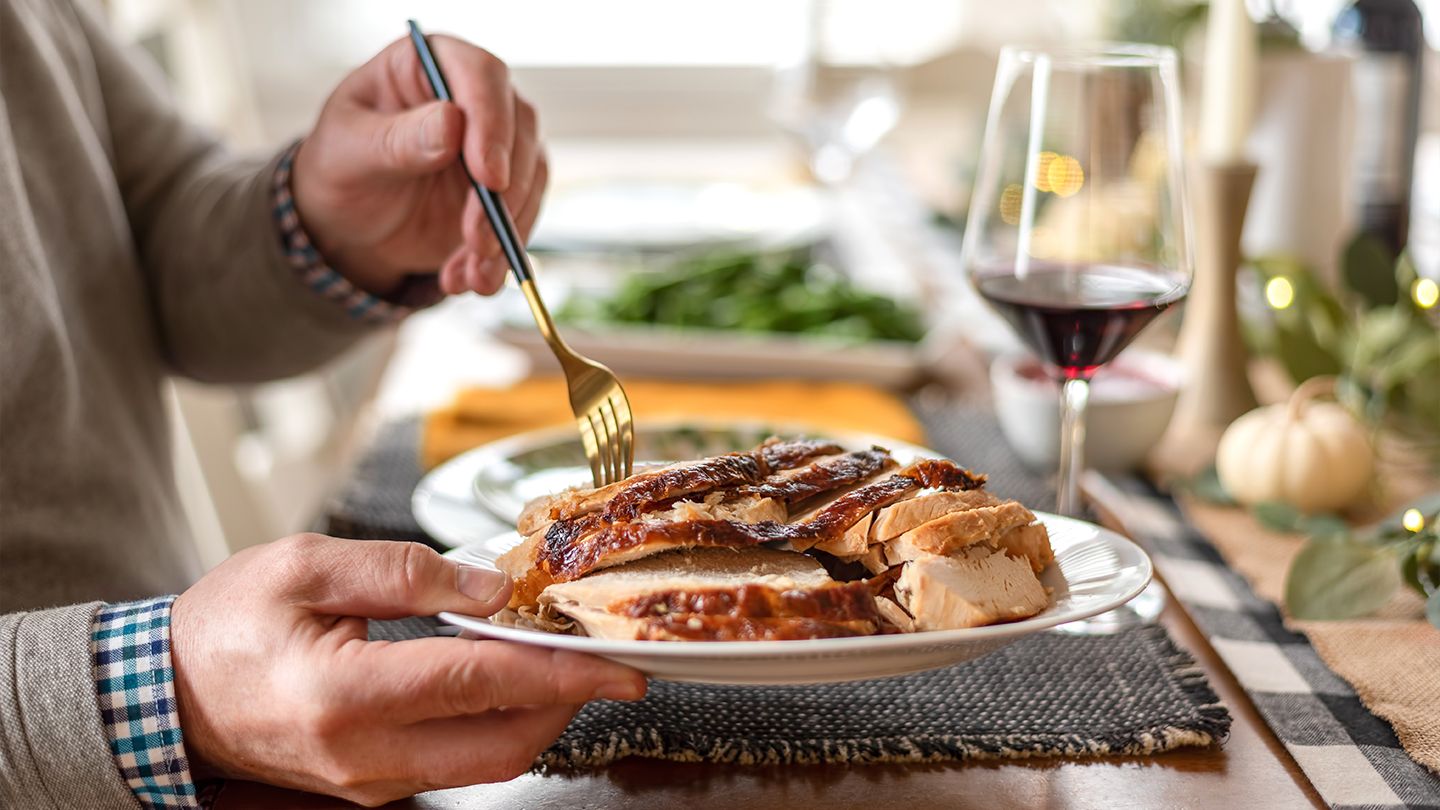Thanksgiving could be a cheat-day extraordinaire if you wanted it to be. Think about it: You’re at a joyful gathering with friends, family ... and a giant, juicy turkey. Not only that, but you also have more delicious sides than you need and an assortment of pies that can make a table groan.
It’s rough.
And it’s not just this one day, but the whole season. “This time of year can be a challenge for people who want to lose weight because of the holidays, special treats, and time [constraints],” says nutrition consultant Milton Stokes, RD.
Whether or not you should count calories on Thanksgiving Day is a matter of debate. But at least for Lose It! app users, it looks like it may help. According to Lose It! member data, those who tracked calories on Thanksgiving lost more weight in the long run than members who didn’t log their calories — even though nearly half of the trackers went over budget that day. Specifically, 47 percent of Thanksgiving calorie trackers who had been using Lose It! for five years or less succeeded at losing 5 percent of their body weight compared to only 24 percent of users who did not keep count.
All that said, if you want to relax, catch up with loved ones, and enjoy the day — without logging every bite of food you put into your mouth — the registered dietitians we spoke to agree that you really don’t have to track your calories on Thanksgiving. “Remember that one meal won’t affect your overall health goals,” says Rahaf Al Bochi, RDN, owner of Olive Tree Nutrition.
Here, Al Bochi and other nutrition pros share their best tips for navigating a diet on Turkey Day.
Be Selective About What You Put on Your Plate
There’s always more than enough food to choose from, so it’s wise to select your serving size carefully. “I encourage people to focus on the quality and type of foods on their plate, not the calories,” says Al Bochi.
This means making room for the healthiest choices. “A great visual tool to follow is the plate method, where half of your plate is for vegetables, a quarter is for protein like turkey or legumes, and the rest is for carbohydrates like mashed potatoes, stuffing, rolls, and dessert,” Al Bochi says.
On the other hand, if you know everyone makes and brings casserole calorie bombs, you can prepare in advance for that, too. To keep from eating too much, “start dinner with a salad,” says Tenika Miles, RD, founder of Scaled Balance Nutrition. “If the host does not plan to serve one, offer to bring one yourself.” Also, skip alcoholic beverages and sugary drinks — after all, calories come in a glass, too — and sip water, seltzer, or other unsweetened drinks.
Focus on the Fun, Not the Food
Holidays are meant for celebration — and, of course, a table overflowing with food is a big part of that. But even if everyone else is gorging themselves, it doesn’t mean you have to. “Enjoy this festive time with seasonal food favorites in moderation,” says Miles.
Miles also recommends trying to curb any negative thoughts about eating more food on Thanksgiving. “Get back on track the following day with whatever regimen you have in place that helps you meet your wellness goals,” she says. And Stokes adds this sage advice: “Be the healthiest you can be that day without letting guilt or deprivation dominate your thinking or actions.”
Eat Mindfully, Not Rapidly
Okay, let’s be honest: Most of us can’t wait to tear into our grandmother’s mouthwatering cornbread stuffing recipe that we only get to eat once a year. But instead of going back for second (or third) helpings, try to savor less of it instead.
“Eating mindfully and with intention allows for enjoyment of food and for individuals to meet their health goals,” says Al Bochi. And when you do that, you may find that the few bites you do take are even more delicious and meaningful. “Really savor it and the conversation with your dining companions,” adds Stokes.
Don’t Starve Yourself All Day to Feast Later
This is particularly true for families who have their meal later in the afternoon or early evening. It’s tempting to avoid putting anything in your mouth to save up all your daily calories for the main event, but that strategy sets you up for failure. “Deprivation often backfires,” says Stokes. You’ll be so ravenous once the food is served that your self-control will be pushed to its limit.
Instead, Miles suggests beginning the day with 30 minutes of exercise and eating a light, high-protein breakfast. “Do not go the whole day without eating because that will make you binge later during the day,” she says.
Editorial Sources and Fact-Checking
- MyPlate. United States Department of Agriculture.
- Zeballos E, Todd JE. The Effects of Skipping a Meal on Daily Energy Intake and Diet Quality. Public Health Nutrition. May 13, 2020.

